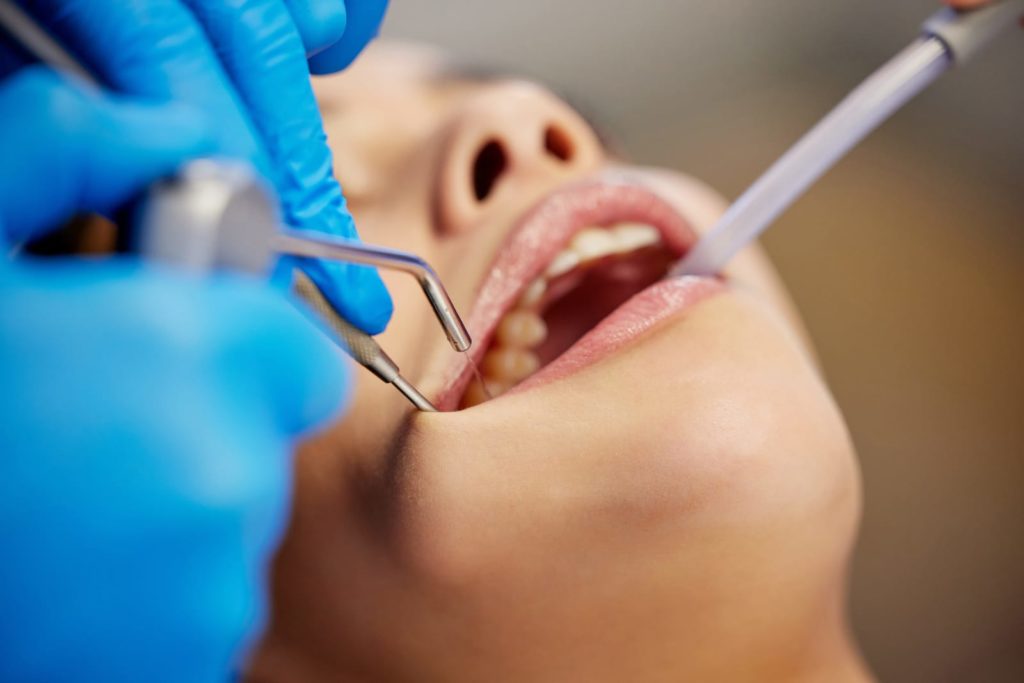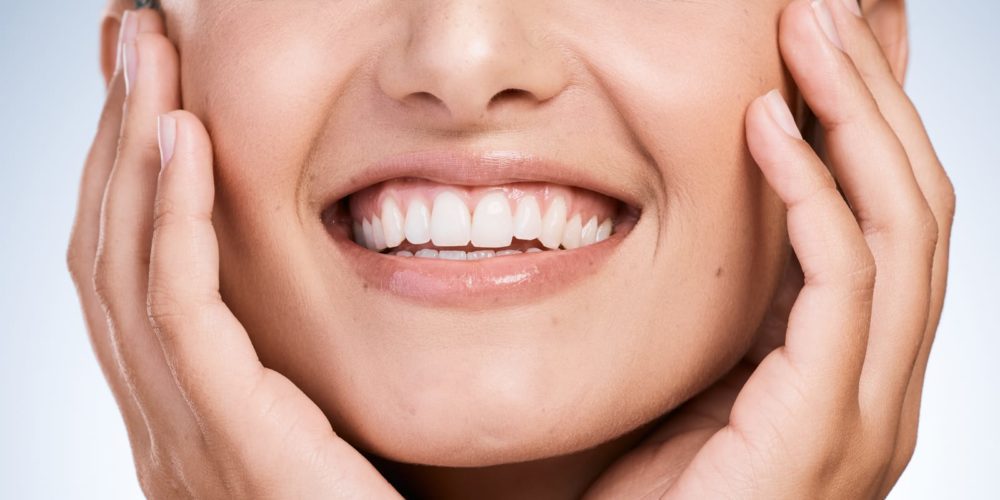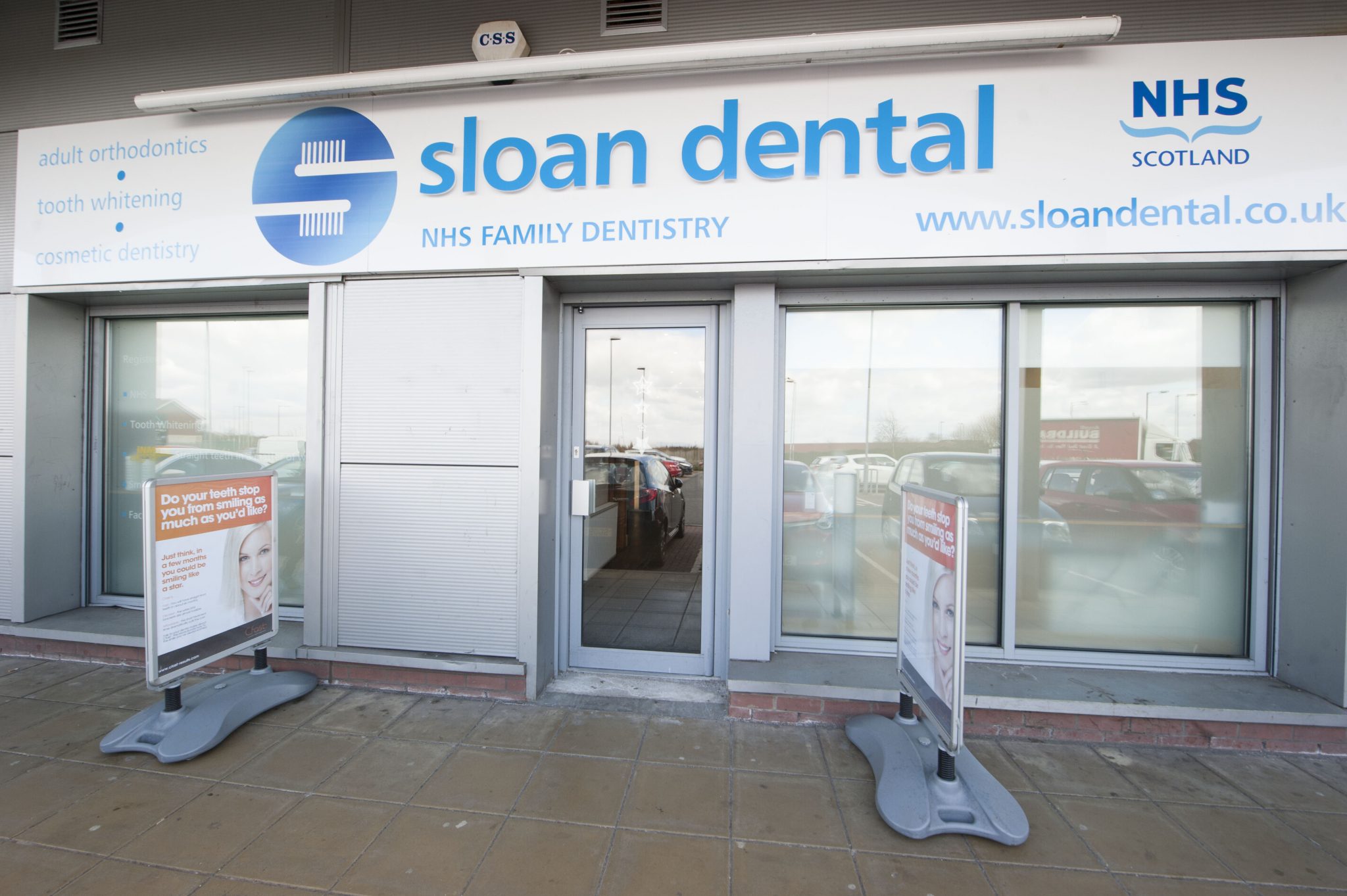A healthy, confident smile can change everything. It makes you feel good, look great, and leaves a lasting impression. At Sloan Dental, we’re here to make maintaining great oral health easy and stress-free.
Who says achieving a healthy smile has to be complicated? In this guide, we’ll walk you through everything you need to know to take care of your teeth and keep your smile shining bright in Glasgow.
Just keep reading.
Why Dental Care Matters
Taking care of your teeth is about more than just having a nice smile. Good dental care plays a big role in your overall health and well-being.
Research shows that people with healthy teeth and gums are less likely to develop serious conditions like heart disease, diabetes, and even strokes.
According to the World Health Organization, nearly 3.5 billion people worldwide are affected by oral diseases. Regular dental care can help you avoid being part of this statistic.
Proper dental care also saves you time and money in the long run. Treating small issues early, like a cavity or gum inflammation, prevents them from becoming bigger problems. For example, a filling is much easier and more affordable than treating an advanced tooth infection or getting a root canal.
What about the incredible confidence boost? Yes, maintaining healthy teeth and gums has a great impact on your confidence. So, taking care of your dental health matters more than you might think.
How to Maintain a Healthy, Confident Smile
A healthy smile starts with good oral hygiene and regular dental care. Unfortunately, not many people are aware of how to go about these.
So, we are going to be taking these step by step to help you get all that you need to maintain a brilliant smile.
Maintaining Good oral hygiene
#1: Brush Your Teeth Regularly and Properly

Brushing your teeth is the cornerstone of oral hygiene. It removes food particles, plaque, and bacteria that can cause cavities, gum disease, and bad breath. When done properly, brushing helps keep your teeth strong and your gums healthy.
But the question is if you know how to do it right. So, here are some tips to ensure effective brushing:
- Brush twice a day
Morning and night brushing are essential. Never skip your evening brush, as it removes the day’s buildup of food and bacteria.
- Use the right toothbrush
Choose a soft-bristled toothbrush to protect your gums. Replace it every 3-4 months or when the bristles start to fray.
- Brush for two minutes
Spend at least two minutes brushing, dividing the time evenly between all areas of your mouth.
- Use proper technique
Hold your toothbrush at a 45-degree angle to your gums and use gentle, circular motions. Avoid brushing too hard, as this can harm your gums and enamel.
#2: Floss Daily

Brushing alone isn’t enough to keep your mouth healthy – flossing is just as important. Flossing removes food particles and plaque from between your teeth and along the gumline, where your toothbrush can’t reach.
It’s a simple habit that helps prevent various oral diseases and bad breath.
Plaque buildup in hard-to-reach areas can lead to gum inflammation, also known as gingivitis, and if left untreated, this can progress to more serious conditions like periodontitis. Flossing daily disrupts this buildup and help keep your teeth and gums in great shape.
Here are a few things to keep in mind about flossing:
- Daily commitment
Flossing once a day is enough to make a difference. Make it part of your evening routine for the best results. - Technique matters
Use about 18 inches of floss, wrapping it around your fingers and guiding it gently between your teeth. Curve it into a “C” shape around each tooth and move it up and down to remove plaque effectively. - Consider alternatives
If traditional floss is tricky, try floss picks, interdental brushes, or a water flosser. These tools can make flossing easier and more convenient. - Don’t skip the back teeth
Make sure to reach all areas, especially the molars, as they’re often the hardest to clean and more prone to decay.
Flossing may take a little extra time, but the results are worth it. It’s one of the easiest ways to protect your smile and ensure your gums stay healthy and strong.
#3: Mouthwash Matters
Mouthwash is an excellent addition to your oral hygiene routine, giving your teeth and gums extra protection.
It helps rinse away food particles and bacteria that brushing and flossing might miss, while also freshening your breath. Certain mouthwashes are specially formulated to reduce plaque, fight gingivitis, and strengthen enamel with fluoride.
So, we recommend that you use your mouthwash daily because it actually matters. Just remember, it’s not a replacement for brushing and flossing – it’s an additional step in keeping your smile clean and confident.
#4: Clean Your Tongue: Don’t Overlook It

Your tongue plays a key role in your oral health, but it’s often overlooked during cleaning routines. Bacteria and food particles can accumulate on your tongue’s surface, leading to bad breath and even contributing to plaque buildup on your teeth.
Using a tongue scraper or gently brushing your tongue with your toothbrush removes these bacteria and keeps your mouth fresher and healthier.
Whenever you are brushing your teeth, remember to give attention to your tongue also.
#5: Mind Your Diet
What you eat has a direct impact on your oral health. Sugary and acidic foods can lead to tooth decay and weaken your enamel, making your teeth more vulnerable to damage.
To protect your smile, focus on a diet rich in tooth-friendly foods like fruits, vegetables, dairy products, and lean proteins.
Foods high in calcium, like milk and cheese, help strengthen your teeth, while crunchy options like apples and carrots naturally clean your teeth as you chew.
Limit sugary drinks like fizzy sodas and energy drinks, as they can erode enamel over time. If you indulge in sweets, try to eat them with a meal rather than snacking throughout the day, and brush soon after.
#6: Drink Plenty of Water

Water isn’t just great for your body – it’s essential for your smile too. Drinking water throughout the day helps wash away food particles and bacteria, keeping your mouth clean and fresh. It also neutralizes acids that can damage your enamel, especially after meals.
Unlike sugary drinks or acidic sodas, water is kind to your teeth and gums. It keeps your mouth hydrated, stimulates saliva production, and helps prevent dry mouth, which can lead to bad breath and tooth decay.
So, make water your go-to drink. Carry a bottle with you, sip it regularly, and let every gulp work toward a healthier, brighter smile.
Regular Dental Care
#7: Visit the Dentist Regularly
Regular dental visits are crucial for maintaining a healthy, confident smile. These appointments allow your dentist to spot issues early – before they turn into bigger, more expensive problems.
Professional cleanings can help remove plaque and tartar that brushing and flossing can’t reach. This is very important when it comes to preventing cavities, gum disease, and bad breath.
However, we understand that visiting the dentist isn’t easy for everyone. Fear and anxiety about dental appointments are more common than you might think.
But don’t worry – there are ways to make your visits more comfortable. Here are some tips:
- Talk to Your Dentist: Let us know if you’re feeling anxious. At Sloan Dental, we’re experienced in helping nervous patients and can adjust your care to make you feel at ease.
- Bring a Friend: Having a trusted friend or family member with you can provide reassurance and comfort.
- Practice Relaxation Techniques: Try deep breathing or meditation before your appointment to calm your nerves.
- Schedule Wisely: Book your appointment at a time of day when you feel most relaxed and can take your time.
- Ask About Sedation Options: If your anxiety is severe, ask about sedation options to help you feel more comfortable during treatment.
#8: Address Dental Issues: Don’t Let Problems Linger

Ignoring dental issues can lead to bigger problems and impact your overall oral health. Treating concerns like gum disease, cavities, or tooth sensitivity early prevents them from worsening and helps maintain a strong, healthy smile.
Regular routine examinations allows issues to be addressed promptly, saving you discomfort and costly treatments down the line.
Here are some common dental issues and how they can be addressed:
- Cavities: They can be treated with fillings to restore the tooth and prevent further decay.
- Gum Disease: Can be managed with gum health treatment, including deep cleaning, scaling, and root planing to stop infection and promote healing.
- Tooth Sensitivity: Reduced with desensitizing treatments and advice on toothpaste and brushing techniques.
- Chipped or Cracked Teeth: Repaired with bonding, crowns, or veneers to restore appearance and function.
- Missing Teeth: Replaced with dental implants, bridges, or dentures to maintain alignment and chewing ability.
- Misaligned teeth: Can be addressed with different types of braces. This can be by traditional metal braces or clear braces like invisalign if you prefer a more discrete solution.
#9: Use the Right Toothpaste
A good toothpaste should contain fluoride, which strengthens enamel and helps prevent cavities. If you have specific concerns like sensitivity, tartar buildup, or discoloration, there are toothpastes designed to address those too.
Avoid abrasive formulas that can damage your enamel over time. When in doubt, ask your dentist for recommendations tailored to your needs.
#10: Protect Your Teeth
Your teeth are strong, but they still need protection from everyday wear and tear. If you play sports, wearing a mouthguard can prevent injuries to your teeth and gums.
For those who grind their teeth at night, a custom-made night guard can protect against enamel erosion and jaw pain. Avoid habits like chewing ice or opening packages with your teeth, as these can cause chips or cracks.
Talking about habits, there are many habits you will want to work on if you would achieve a healthy, confident smile in Glasgow. Let’s quickly consider some of them.
Bad Habits to Avoid for a Healthy Smile
Your daily habits have a big impact on your oral health, and some common behaviors can harm your teeth and gums over time. So, what are the habits to watch out for and avoid? Let’s see some:
- Nail Biting
Biting your nails can chip your teeth and place unnecessary stress on your jaw. It’s a tough habit to break, but keeping your nails trimmed and using stress-reducing techniques can help. - Using Teeth as Tools
Your teeth are for chewing, not opening bottles, tearing packages, or cracking nuts. These actions can cause chips, cracks, and other damage to your enamel. - Frequent Snacking
Constantly snacking, especially on sugary or starchy foods, fuels bacteria in your mouth and increases the risk of cavities. Stick to set meal times and choose tooth-friendly snacks like fruits or nuts. - Chewing Ice
Crunching on ice may seem harmless, but it can cause cracks in your enamel and even break a tooth. Opt for chilled drinks without ice to curb the temptation. - Smoking and Tobacco Use
Tobacco stains your teeth, causes bad breath, and increases the risk of gum disease and oral cancer. Quitting is one of the best things you can do for your smile and overall health.
Oral Care Tips for Children

As a parent, you want your child to grow up with a smile that lights up every room. Building good oral care habits early is the key to making that happen. The great news? Helping your little ones look after their teeth can be fun and rewarding!
Teach them to brush
Start by teaching them to brush their teeth twice a day with a child-friendly toothbrush and toothpaste. Make it a game – use a fun timer or play their favorite song to keep them brushing for the full two minutes.
Show them how to hold the brush and clean every corner of their teeth. It’s also important to teach them to spit out the toothpaste but avoid rinsing with water, so the fluoride can do its job.
Let them know about flossing
Introduce flossing as soon as their teeth start touching. Flossing might seem tricky at first, but with floss picks or kid-friendly tools, it can quickly become a manageable habit.
Watch what they eat
Diet matters, too. Limit sugary snacks and drinks, and offer tooth-friendly options like cheese, yogurt, and crunchy fruits and vegetables. Water should always be the drink of choice, especially between meals.
Regular dental checkup
Regular dental check-ups are essential for kids. Bring them to the dentist as soon as their first tooth appears or by their first birthday. This helps them get comfortable with dental visits and ensures their teeth are developing properly.
Be a good example
This is perhaps the most important tip. You will need to lead by example. Let your kids see you brushing, flossing, and caring for your teeth. They’re more likely to follow your lead when oral care is a family activity.
Oral Health Concerns in Adults and Seniors

As we age, our oral health needs evolve, and understanding these changes is key to maintaining a confident smile.
Whether you’re an adult balancing a busy lifestyle or a senior managing age-related dental concerns, here are some practical tips to keep your teeth and gums in great shape.
Work on reducing stress
For adults, stress and lifestyle habits can take a toll on oral health. Teeth grinding (bruxism) is a common issue that can cause wear and tear on your enamel. If you suspect you’re grinding your teeth, talk to your dentist about a custom night guard. It’s also important to manage stress and avoid clenching your jaw during the day.
Maintain good oral health
Gum disease becomes a bigger risk for adults and seniors alike. Regular brushing, flossing, and dental check-ups can help prevent and manage it. If you notice bleeding gums, don’t ignore it – early intervention can make a big difference.
Stay hydrated
Dry mouth, often caused by certain medications, is another concern for seniors. Staying hydrated, chewing sugar-free gum, and using a saliva substitute can help combat this uncomfortable condition.
Get more calcium
For both adults and seniors, maintaining strong teeth is vital. Incorporate calcium-rich foods like milk, cheese, and leafy greens into your diet, and consider fluoride toothpaste to protect against decay.
Regular dental visits
Regular dental check-ups are crucial at every stage of life. For seniors, they’re especially important for monitoring conditions like oral cancer and ensuring dentures or bridges fit comfortably.
Let’s Help You Achieve the Smile of Your Dreams
Your smile deserves the best care, and at Sloan Dental, we’re here to make it happen. Whether you need routine check-ups, advanced treatments, or expert advice, our friendly team is ready to help you every step of the way.
Don’t wait to take the next step toward a healthier, more confident smile. Book your appointment today and let us show you why we’re Glasgow’s trusted choice for exceptional dental care!
FAQs
How often should I brush my teeth?
You should brush your teeth twice a day – once in the morning and once before bed. This helps remove plaque, bacteria, and food particles, keeping your teeth and gums healthy.
What type of toothpaste should I use?
Choose a fluoride toothpaste to strengthen your enamel and prevent cavities. If you have specific concerns like sensitivity, tartar buildup, or discoloration, look for a toothpaste designed to address those needs. Your dentist can recommend the best option for you.
Who is the right candidate for Invisalign?
Invisalign is ideal for teens and adults with mild to moderate orthodontic issues like crooked teeth, gaps, or bite problems. It’s a great choice if you’re looking for a discreet and removable alternative to traditional braces.
How often should I see a dentist?
It’s recommended to visit your dentist every six months for a routine check-up and cleaning. However, if you have specific dental concerns or ongoing treatment, your dentist may suggest more frequent visits.
What can I do if I have bad breath?
Bad breath can often be managed with good oral hygiene. Brush your teeth and tongue twice a day, floss daily, and stay hydrated. Avoid foods that cause strong odors, like garlic and onions. If bad breath persists, it could be a sign of an underlying issue, so schedule a dental visit.
What is the cause of sensitive teeth?
Sensitive teeth are often caused by enamel erosion, gum recession, or tooth decay. Exposed dentin makes your teeth more reactive to hot, cold, sweet, or acidic foods.
Using toothpaste for sensitive teeth and avoiding harsh brushing can help, but if the sensitivity continues, you may need to contact us for help.



